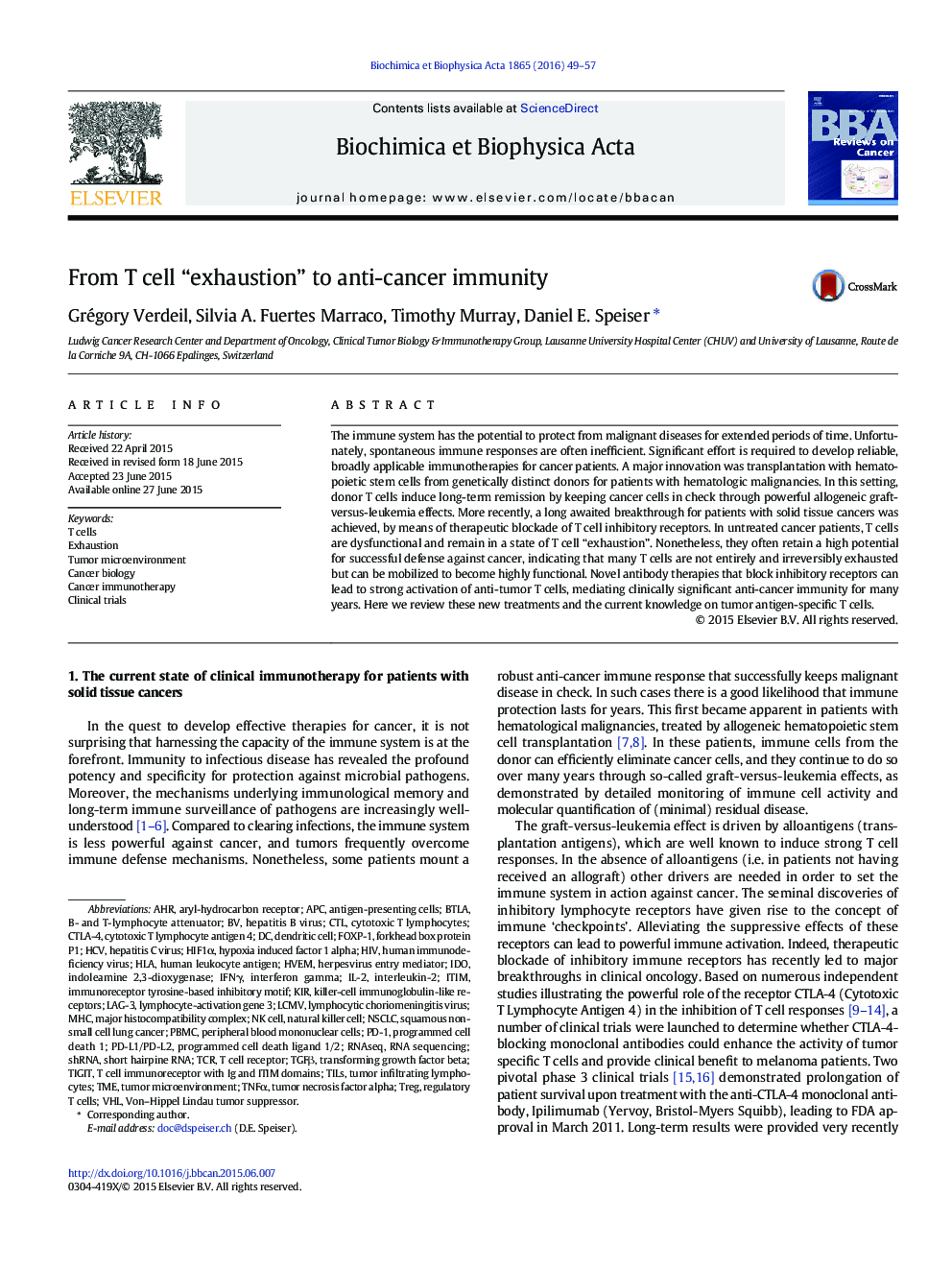| Article ID | Journal | Published Year | Pages | File Type |
|---|---|---|---|---|
| 2100837 | Biochimica et Biophysica Acta (BBA) - Reviews on Cancer | 2016 | 9 Pages |
•Research in immunology has set the basis for successful cancer immunotherapy.•We emphasize the multiple roles of inhibitory receptors of T cells (T lymphocytes).•We review novel findings in molecular and functional regulation of T cell “exhaustion”.•Finally, we focus on future developments of cancer immunotherapy.
The immune system has the potential to protect from malignant diseases for extended periods of time. Unfortunately, spontaneous immune responses are often inefficient. Significant effort is required to develop reliable, broadly applicable immunotherapies for cancer patients. A major innovation was transplantation with hematopoietic stem cells from genetically distinct donors for patients with hematologic malignancies. In this setting, donor T cells induce long-term remission by keeping cancer cells in check through powerful allogeneic graft-versus-leukemia effects. More recently, a long awaited breakthrough for patients with solid tissue cancers was achieved, by means of therapeutic blockade of T cell inhibitory receptors. In untreated cancer patients, T cells are dysfunctional and remain in a state of T cell “exhaustion”. Nonetheless, they often retain a high potential for successful defense against cancer, indicating that many T cells are not entirely and irreversibly exhausted but can be mobilized to become highly functional. Novel antibody therapies that block inhibitory receptors can lead to strong activation of anti-tumor T cells, mediating clinically significant anti-cancer immunity for many years. Here we review these new treatments and the current knowledge on tumor antigen-specific T cells.
